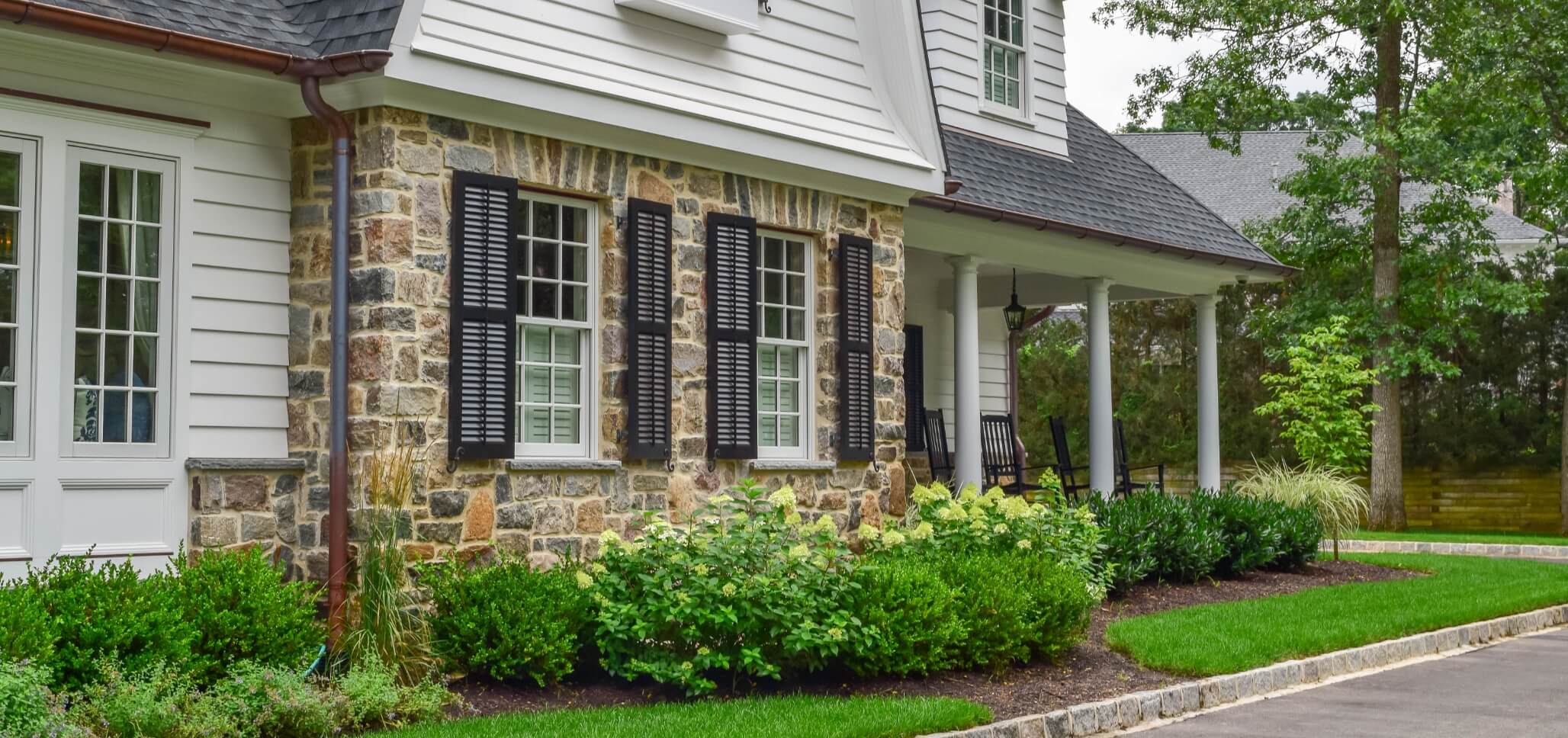 Transforming your landscape into the one of your dreams takes careful consideration and excellent execution. Over time we’ve seen a lot of homeowners debate whether pea gravel or mulch is best for their landscape.
Transforming your landscape into the one of your dreams takes careful consideration and excellent execution. Over time we’ve seen a lot of homeowners debate whether pea gravel or mulch is best for their landscape.
Since we can tell you’re passionate about your gardens, flowerbeds and landscape we want to make sure you learn which material best fits your needs.
Some of the more common questions we get in Bergen County about pea gravel and mulch are:
- Is there some merit to using a traditional mulch over an alternative material like pea gravel?
- What are the advantages to using one of these product types over the other?
We’ve compared the pros and cons of each material and made a recommendation on which material you should choose depending on your project.
The Pros and Cons of Mulch
One of the things that many homeowners don’t realize is that the term mulch is technically defined as any organic material that can be used as ground cover. Some examples of this is that gardeners have relied on organic materials like wood chips, pine needles, straw, leaves, grass clippings, and others in order to promote the healthy growth of their plant life. Of these materials, wood chips tend to be the most commonly used.
The prevalence of this organic substance in and around vegetated areas has actually caused people to use the words ‘wood chips’ interchangeably with ‘mulch’. So what is it that makes wood chip and other organic mulch so popular?
Mulch is able to serve several purposes, both functionally and aesthetically. First, the material works to retain moisture levels in the soil, which is beneficial to root systems and plantings. At the same time, an adequate layer of mulch can help to discourage the growth of unwanted weeds around flowers, vegetables and other plant life.
Additionally, an organic mulch like wood chips will decompose over time. The process of decomposition replenishes the surrounding soil with nutrients, and fertilizes vegetation.
The one con of mulch that we will point out is that as it decomposes it will need to be replaced if you want to keep the area looking fresh. This is general maintenance that will be required either yearly or bi-yearly.
The Pros and Cons of Pea Gravel
In recent years, it has become increasingly common for pea gravel to be utilized as an inorganic mulching compound. As with organic mulches like wood chips, pea gravel works to block out sun rays in order to prevent the evaporation of moisture that is essential to the soil and planted vegetation.
Pea gravel is also known for its ability to promote healthy drainage, slowly percolating water back into the soil and ground supply. This is especially advantageous in areas where water otherwise has a tendency to collect and stand, or around plants that generally prefer drier conditions.
Additionally, pea gravel doesn’t decompose or decay, meaning that it won’t need to be replaced on an ongoing basis.
One of the largest cons of pea gravel is that it is more expensive than mulch, a bit more difficult to install and you will need to install edging to keep the gravel out of other areas.
Pea Gravel vs Mulch: Which is Better for You?
In the debate of pea gravel vs mulch, there actually isn’t a clear-cut winner. Both materials have their merits and can work well in promoting soil and plant health. Ultimately, what it comes down to is your specific requirements and your personal preferences.
First, understand the needs of your plants. As organic mulch can absorb and hold a lot of moisture while preventing the evaporation of the soil’s moisture, it’s smart to use wood chips and similar materials around plantings that require plenty of water in order to thrive.
Pea gravel will prevent erosion, but won’t retain moisture well, instead focusing on ample drainage. This makes the material best suited to vegetation like succulents, cacti and other dry plants.
You’ll also need to think about aesthetics. Do you prefer the look of an organic mulch or are the variety of colors and soft texture of pea gravel more appealing to you?
Some careful consideration makes the decision of choosing between pea gravel and mulch much easier and more practical.
Speak with Your Local Supplier
If you’re still on the fence about which material you should choose we recommend speaking with a local supplier. They will be able to show you their products on-site, discuss the benefits each will provide to your property and answer any questions you may have.
Braen Supply specialists have been assisting homeowners and contractors with landscape materials for more than a decade. We’re happy to assist you with any questions you may have throughout your project.
We offer both pea gravel and mulch for sale at wholesale prices across all of NJ, NY, PA & CT. We have both pickup and bulk delivery options available across all of these areas including Bergen, Passaic and Essex County.

